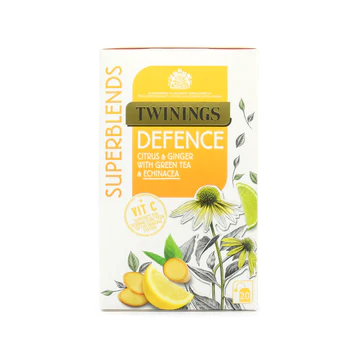Freelancers can’t afford to get ill: here are tips to outsmart the COVID Pirola variant – even one that includes playing with your pet
SPECIAL REPORT
We share preventative tips and tricks on how to keep the COVID Pirola variant at bay. By incorporating these actions into your daily routine you should have a better chance of not only avoiding falling ill but feeling healthier and less stressed overall

The new BA.2.86 variant of SARS-CoV-2—nicknamed “Pirola”—is spreading in communities across the UK. The government was confident of this after an outbreak was reported at a Norfolk care home, according to the British Medical Journal.
The variant, according to the BMJ, contains many mutations to the spike gene and was first detected in Denmark in late July and has been identified in several countries including Canada, Israel, Portugal, South Africa, and Sweden, as well as the UK and the US.
Many people coming down with COVID now complain of fatigue and nausea as the first symptoms followed by headache and pain-related vomiting. Diarrhoea and a facial rash are other symptoms. But with COVID testing fading, many of us could be spreading the virus without realising it. Many of us are just living with the fact we could catch COVID as easily as the common cold.
However, Steve Russell, NHS director of vaccinations and screening, says, “With concerns arising over new COVID variants, it’s vital we adapt the programme and bring it forward for those most at risk, and so I strongly urge everyone eligible to come forward as soon as they can for this important protection in colder months.”
Not everyone is eligible for a booster or wants to take one. So, what do you do to best protect yourself from contracting the virus or at the very least keeping symptoms to a minimum if you do come in contact with the latest Pirola variant?
Here we share how to incorporate stress-busting superfoods and relaxing activities that promote boosted immunity and stress relief, both contributing factors in fighting off viruses and critical illnesses.
Natural remedies and tricks that boost immunity against COVID:
If you’re not eligible for a COVID-19 booster shot, don’t panic. There are still plenty of things you can do to stay safe and healthy.
Thinking of healthy food as medicine is one place to start. Eating plenty of fruits, vegetables, and whole grains will help keep your immune system strong. Avoid processed foods, sugary drinks, and unhealthy fats as much as possible since these raise an inflammatory response in our muscles and tissues. While many of us have heard this advice before, in the winter months, we need to adhere to it more than ever.
Here are a few more tips:
Gargle with germ-fighting mouthwash to kill germs before they spread. If you feel a sore throat or tickle coming on, take an effervescent vitamin tablet for a quick hit of vitamin C and other essential vitamins. Then after that, gargle twice with a germ-killing mouthwash such as Listerine to kill germs breeding in your throat. If you feel the sore throat coming on again in the middle of the night, gargle again. There have been recent reports that mouthwash can do more harm than good for oral health, but we are talking about using it specifically to kill cold and COVID viruses, not keeping dentists in or out of business. We cite research carried out by Rutgers School of Dental Medicine which has found evidence that two types of mouthwash (Listerine and prescription mouthwash Chlorhexidine) disrupt the COVID-19 virus under laboratory conditions, preventing it from replicating in a human cell.
Rest as much as you can. Sleep is essential for overall health and well-being, including immune function. Aim for 7-8 hours of sleep per night. If that isn’t possible you can always take a short nap after lunch or take a walk which might make you more tired come bedtime. But if you are one of those people who wake at 3 o’clock every morning look for a guided sleep meditation to listen to to get you back to sleep and keep anxiety at bay. Here is one below you could try:
Exercise regularly no matter the weather. Aim for at least 30 minutes of moderate-intensity exercise most days of the week. Wall Pilates is all the rage now, search for free videos to try at home.
Take certain supplements and herbal teas. Some supplements, such as vitamin D, zinc, and elderberry, have been shown to boost immunity. Be sure to talk to your doctor before taking any supplements, especially if you have any underlying health conditions. Herbal teas are now available in supermarkets that also include herbal remedies for immunity. Twinings do a series of teas called Superblends that address immunity and detox.

10 Stress-Reducing Superfoods to Add to Your Diet
Stress is a normal part of life, but when it becomes chronic, it can have a negative impact on your physical and mental health. One way to manage stress is to eat a healthy diet. We may not realise this until we really put it into action and understand which foods contain nutrients that can help to reduce stress and promote relaxation. Try to include as many of the items listed below in your daily diet. Be on the lookout for alternatives if you are allergic to any of the following.
- Fatty fish
Fatty fish, such as salmon, mackerel, and sardines, are rich in omega-3 fatty acids. Omega-3 fatty acids have been shown to reduce inflammation and improve mood.
ALLERGIC TO FISH AND SEAFOOD? Here are some alternatives.
- Berries
Berries are packed with antioxidants, which can help protect your cells from damage. Antioxidants can also help to reduce stress and improve mood.
- Dark chocolate
Dark chocolate contains flavonoids, which are compounds that have been shown to improve blood flow and reduce inflammation. Flavonoids can also help to improve mood and reduce stress.
- Green tea
Green tea contains L-theanine, an amino acid that has been shown to promote relaxation and reduce anxiety. You can have this hot first thing in the morning or after lunch. You can also have it as an iced tea and add a few flavoured teas into the brew, something with beneficial qualities rather than artificially flavoured.
- Yoghurt
Yoghurt is a good source of probiotics, which are live bacteria that are beneficial for gut health. Probiotics have been shown to reduce stress and improve mood. While you might grab a low-fat option, more and more nutritional experts suggest going for the full-fat kind instead to avoid food fillers that can bring on leaky gut and inflammation.
- Nuts
Nuts are a good source of protein, fibre, and healthy fats. Protein and fibre can help to keep you feeling full and satisfied, which can reduce stress levels. Healthy fats can help to improve mood, reduce inflammation and help with joint health.
- Seeds
Similar to nuts, seeds provide protein, fibre, and healthy fats that can help to reduce stress levels and improve mood. Seeds can often replace nutrients you would get in nuts if you have a nut allergy. However, if you don’t combining seeds and nuts is very healthy and a staple for people living in Blue Zones.
- Whole grains
Whole grains are a good source of complex carbohydrates, which can help to stabilise blood sugar levels and provide sustained energy. This can help to reduce stress levels and improve mood.
- Leafy green vegetables
Leafy green vegetables, such as spinach, kale, and greens, are packed with nutrients, including vitamins, minerals, and antioxidants. These nutrients can help to reduce stress and improve your mood and gut health.
- Avocados
Avocados are a good source of healthy fats, fibre, and potassium. Healthy fats can help to improve mood and reduce inflammation, while fibre can help to keep you feeling full and satisfied. Potassium can help to regulate blood pressure and reduce stress levels.
How to incorporate stress-reducing superfoods into your diet
- Add berries to your oatmeal, yoghurt, or smoothies. Look for pre-packed seed and dried fruit to add to oatmeal and yoghurt, too.
- Eat a handful of nuts or seeds as a snack.
- Add fatty fish to your salads, bowls, or stir-fries.
- Drink green tea instead of coffee or soda.
- Add avocado to your sandwiches, salads, or wraps.
- Use whole grains instead of refined grains in your breads, pastas, and cereals.
- Eat leafy green vegetables in your salads, soups, omelettes or stir-fries.

Spend time with your pet and feel your stress melt away
Stress is a normal part of life, but too much stress can take a toll on our physical and mental health. That’s where our furry friends come in. Pet ownership has been shown to have a number of therapeutic benefits, including reducing stress. Being exposed to more germs and bacteria from our pets can oddly enough expose our microbiome to more bacteria which isn’t always a bad thing. Read our article that covers gut health here.
Studies have shown that petting a dog or cat can lower blood pressure and heart rate. Pet ownership can also encourage us to be more active, which can also help to reduce stress.
One way that pets help us reduce stress is by increasing our levels of oxytocin, a hormone that has calming and mood-boosting effects. Oxytocin is released when we bond with our pets, whether we’re petting them, playing with them, or simply spending time with them.
Pets can also help us reduce stress by providing us with companionship and social support. Studies have shown that people who own pets are less likely to feel lonely and isolated. They’re also more likely to have strong social networks, which can help to buffer the effects of stress.
In addition to the emotional benefits, pet ownership can also have a number of physical benefits that can help to reduce stress. For example, studies have shown that petting a dog or cat can lower blood pressure and heart rate. Pet ownership can also encourage us to be more active, which can also help to reduce stress.
If you’re feeling stressed, spend some time with your furry friend. Go for a walk together, play fetch, or simply cuddle up on the couch. Your pet will be happy to see you, and you’ll both feel better for it.
Here are some tips for reducing stress with your pet:
Pet your dog for 20 minutes a day. Studies have shown that this can lower blood pressure and heart rate.
Take your dog for a walk or play fetch. Exercise is a great way to reduce stress for both you and your dog.
Cuddle with your cat. Cats have a calming effect on humans, and their purring can help to lower blood pressure.
Teach your pet a new trick. This is a great way to bond with your pet and provide them with mental stimulation.
Simply spend time with your pet. Even if you’re just sitting on the couch together or your dog is with you while you are working at home, your pet’s presence can be calming and stress-relieving.
If you’re feeling overwhelmed by stress, don’t be afraid to reach out for help. Talk to your doctor, a therapist, or a trusted friend or family member. There is no shame in asking for help, and there are many resources available to support you.
Yes, these rules need to be considered again
Stay up-to-date on the latest COVID-19 news and guidelines. The virus is constantly changing, so it’s important to know what’s going on. You can find the latest info on the websites of the Centers for Disease Control and Prevention (CDC) and the World Health Organization (WHO).
If you know someone who is ill, try to avoid close contact with them. This means staying at least 6 feet away from them and avoiding touching your face. It can be awkward, but as a freelancer with no sick pay, you have a good reason to be cautious!
Start to wear a mask again especially in crowded places. Masks are still one of the best ways to protect yourself from COVID-19 and other respiratory illnesses and the Flu. Make sure your mask fits snugly over your nose and mouth. Get the disposable kind to ensure you are not spreading germs at home.
Keep antiseptic hand gel in your car, bag and at work. Plus get back in the habit of washing your hands frequently with soap and water. Get family members on board, too. Handwashing is one of the best ways to prevent the spread of germs. Be sure to wash your hands for at least 20 seconds, especially after using the bathroom, before eating, and after being around someone who is sick. And we should disinfect our mobile phones and laptops often as they are germ magnets.
Avoid close contact with people who are ill. If you know someone who is ill, try to avoid close contact with them. This means staying at least 6 feet away from them and avoiding touching your face. It can be awkward, but as a freelancer with no sick pay, you have a good reason to be cautious!
If you are really struggling get tested for COVID-19. Early detection and treatment can help prevent the spread of the virus and reduce the severity of your illness.
We hope by following many of these tips, backed up by scientists and nutritionists you will boost your immunity and keep the cogs of the freelance economy turning.


